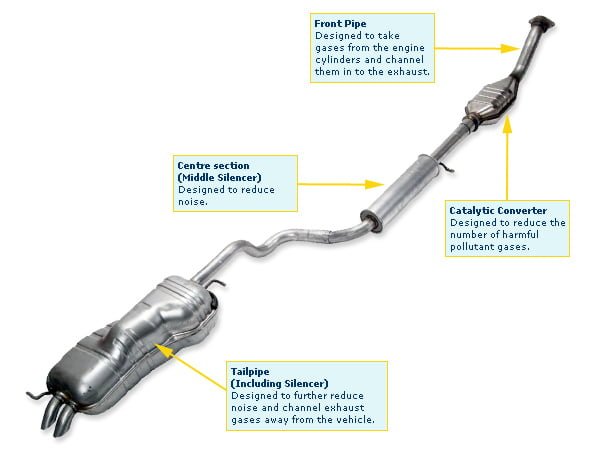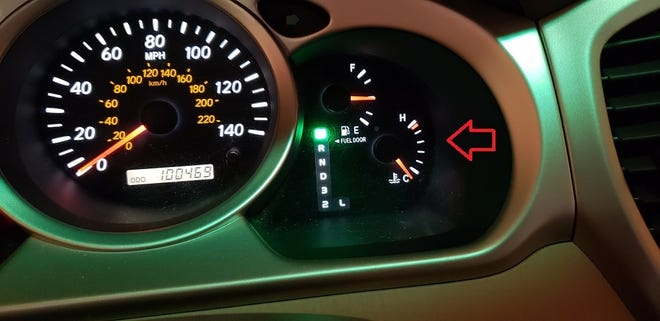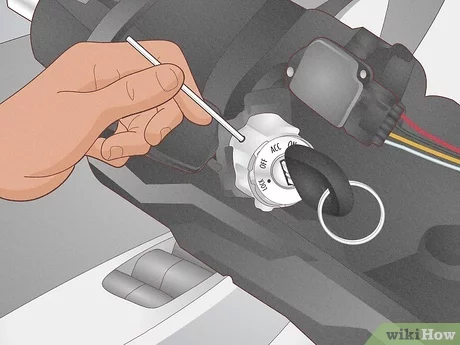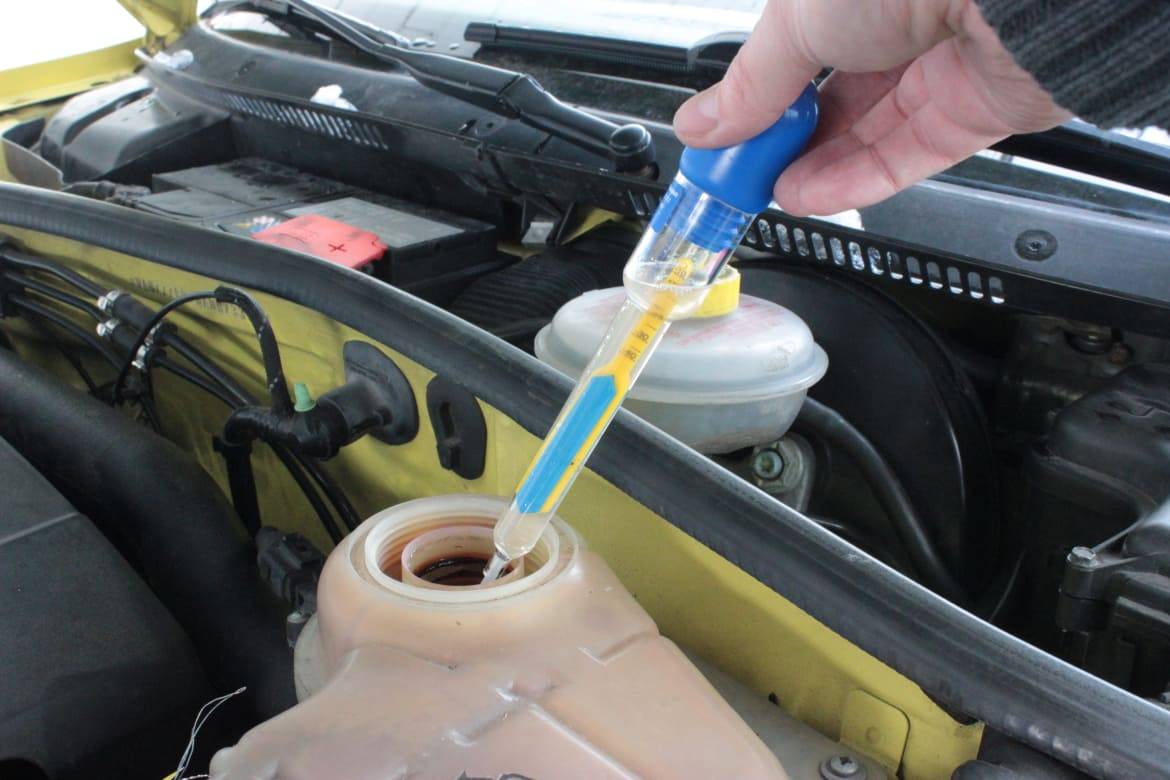Exhaust Leak Sound When Accelerating
An exhaust leak sound when accelerating often resembles a hissing or tapping noise. This noise typically intensifies as the vehicle’s speed increases.
An exhaust leak can manifest as a distinct audio cue that alerts drivers to potential issues within the vehicle’s exhaust system. This sound is not only a nuisance but can also indicate a more significant problem that may affect the car’s performance and the safety of its occupants.
Understanding the urgency of identifying the source of such leaks is crucial, as they can lead to decreased fuel efficiency and increased emissions. Early detection and repair can prevent more extensive damage to the exhaust system, ensuring that your vehicle remains in optimal running condition. As a car owner, staying attentive to the health of your vehicle’s exhaust system is imperative for maintaining its longevity and performance on the road.
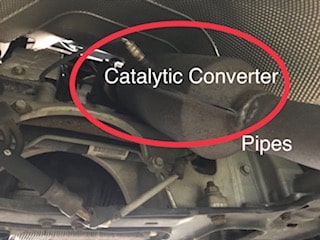
Credit: www.ricksautoservice.org
Identifying Exhaust Leak Noises
Identifying exhaust leak noises is crucial for maintaining a healthy vehicle. A leaking exhaust system not only hampers performance but can also present serious safety risks. Being able to recognize the distinct sounds of an exhaust leak can save time and prevent costlier repairs in the future.
Characteristic Hissing And Popping Sounds
Exhaust leaks often produce a signature hiss or popping noise. These sounds may become more pronounced as the engine revs up. It’s the sound of pressurized gas escaping through cracks or holes in the exhaust system. Listen for these key indicators:
- Hissing when starting the car or idling.
- Popping noises that follow the engine’s rhythm.
Increased Engine Noise During Acceleration
Another telling sign of an exhaust leak is increased engine noise, especially during acceleration. As you press on the gas pedal, the engine works harder and any existing leak in the exhaust system is likely to get louder. This amplification typically presents as:
- A distinct rumble that grows with acceleration.
- An overall increase in engine volume.

Credit: www.huberauto.com
Causes Of Exhaust Leaks
An exhaust leak can disrupt your car’s performance. It’s a sneaky villain, hiding under your vehicle. You press the gas, your car gets noisy. That’s usually the exhaust’s cry for help. A leak happens when the exhaust system is compromised. Several culprits can cause these breaches. Let’s dive into the common causes:
Worn Out Exhaust Components
Time and use take a toll on exhaust parts. Think about your car’s mileage. High? Components might be giving up. Gaskets, seals, and pipes wear down. They crack, break, or just wear out. These are the parts that keep exhaust fumes in line. When they falter, leaks follow.
Corrosion And Rust Damage
Metals hate moisture. Add salt and chemicals from the road, and it’s a recipe for rust. The result? Brittle and weakened exhaust components. This damage doesn’t happen overnight. It’s gradual but relentless. Once rust sets in, parts give way, opening paths for leaks.
Impact And Physical Damage
Ever hit a pothole hard? Undercarriage takes a beating. Same goes for speed bumps or debris. These impacts can dent, puncture, or misalign the exhaust system. Physical damage is often immediate and the most obvious cause for exhaust leaks.
| Cause of Leak | Indicator |
|---|---|
| Worn Components | Age-related wear and tear signs |
| Corrosion & Rust | Rust spots, metal discoloration |
| Impact Damage | Visible dents, holes, misalignments |
Identifying these causes early can save you time and money. Pay attention to the sounds and the performance of your car. A vigilant owner can spot problems before they worsen. Be on the lookout for these red flags to keep your vehicle safe and sound.
Potential Risks Of Ignoring An Exhaust Leak
Hearing an exhaust leak sound when accelerating can signal a problem requiring immediate attention. Ignoring it may lead to various risks, not just to your car’s performance but also to your health and wallet. Find out the potential risks of letting this issue slide below.
Compromised Fuel Efficiency
An exhaust leak can reduce your car’s fuel efficiency. This means the engine has to work harder, using more fuel to produce the same power. Here’s what can happen:
- Increased fuel consumption
- Rising costs at the pump
- Added strain on your budget
Potential Health Hazards From Fumes
When an exhaust leak exists, it’s possible for dangerous fumes to make their way inside your vehicle. These fumes can cause health problems such as:
- Headaches and dizziness
- Nausea
- Long-term respiratory issues
Negative Impact On Engine Performance
Your car’s engine performance is tightly linked to the integrity of the exhaust system. Here’s how a leak can affect it:
| Engine Aspect | Impact of Exhaust Leak |
|---|---|
| Horsepower | Depletion |
| Torque | Reduction |
| Overall Performance | Deterioration |
Diagnostic Techniques For Locating Leaks
Discovering an exhaust leak sound when accelerating can be alarming. Accurate diagnosis is key to pinpointing the source and deciding on the best repair strategy. Key diagnostic methods involve a visual inspection, utilizing smoke machines, and careful listening to identify unusual exhaust sounds. Master these skills to protect your vehicle from potential damage.
Visual Inspection Of The Exhaust System
Begin with a thorough visual check of the exhaust system. Look for rust, holes, or loose components. Check each section, from the manifold to the tailpipe. Don’t miss the gaskets and clamps. Use a flashlight to illuminate hard-to-reach areas. The slightest crack can lead to a significant leak over time.
Using A Smoke Machine For Detection
If a visual inspection doesn’t reveal the leak, smoke testing can be the next step. Here’s a straightforward method:
- Connect a smoke machine to the exhaust system.
- Fill the system with smoke and monitor where it escapes.
- Identify the leak through the smoke’s exit points.
Leaks become obvious as the smoke seeps through cracks or disconnected parts.
Listening For Changes In Exhaust Sound
A keen ear is essential to detect subtle changes in exhaust sound. For better accuracy, follow these steps:
- Start the engine and let it idle.
- Listen closely as you gently rev the engine.
- Note any hissing or popping noises.
These sounds often increase with acceleration, indicating potential exhaust leaks.
Repairing An Exhaust Leak
An exhaust leak can be more than just a nuisance. It can impact your vehicle’s performance and fuel efficiency. Luckily, there are ways to address this issue before it leads to more significant problems. Understanding the options, from temporary fixes to professional repair, can save time and money.
Temporary Fixes And Their Limitations
There are quick fixes for an exhaust leak that you can apply in a pinch. These are not long-term solutions, but they can help you get to a professional without causing further damage to your car.
- Exhaust tape: A temporary bandage around the leak.
- Epoxy: A sealant for small holes.
These solutions have their drawbacks. They often fail under high temperatures or with the vibration of regular driving, meaning they’re not a substitute for a proper fix.
Professional Repairs And Replacement
For a guaranteed solution, professional repairs are necessary. Mechanics have the tools and expertise to diagnose and mend exhaust leaks effectively. They might:
- Weld holes or split seams.
- Replace rusted or damaged sections of the exhaust.
- Ensure everything is properly sealed and mounted.
This ensures the leak is resolved with quality parts and a professional touch, lasting much longer than any DIY method.
Preventative Maintenance Practices
Preventing exhaust leaks is key to avoiding repair costs. Regular maintenance includes:
| Practice | Action |
|---|---|
| Inspections | Check the exhaust system regularly for signs of wear. |
| Listening | Pay attention to new or unusual sounds when accelerating. |
| Addressing Rust | Treat any rust spots before they worsen. |
Staying proactive with these steps can significantly reduce the risk of future exhaust leaks and save money.
Enhanced Vehicle Performance Post-repair
An exhaust leak can sound like a car’s cry for help and repairing it brings significant improvements. The vehicle’s performance elevates, offering a smoother, more efficient drive. Let’s explore the positive changes you’ll notice post-repair.
Noticeable Changes In Acceleration Sound
Post-exhaust repair, the annoying hissing or popping sound during acceleration disappears. The engine roars back to life with a clean, clear rev akin to its original state. It’s a sign that your car is performing optimally, leaving behind the bothersome noise that once highlighted an issue.
Improvement In Fuel Economy
Leaks can cause fuel wastage, impacting your wallet. After sealing the breach, you experience a notable increase in miles per gallon. This improvement isn’t just good for your budget; it’s also beneficial for the environment as it reduces the vehicle’s emissions.
Long-term Benefits For Engine Health
Mending an exhaust leak contributes to a healthier engine life span. It alleviates the strain caused by faulty exhaust systems. You’ll notice fewer visits to the mechanic and enjoy the longevity of your car’s pristine condition. Keeping your engine in top shape is a solid investment for the future.

Credit: www.reddit.com
Frequently Asked Questions Of Exhaust Leak Sound When Accelerating
What Does An Exhaust Leak Sound Like?
An exhaust leak typically creates a sharp, hissing, or tapping sound while accelerating. Noticeable increases in volume with acceleration are a common symptom.
Can An Exhaust Leak Affect Acceleration?
Yes, an exhaust leak can affect acceleration by disrupting the engine’s pressure balance. It may cause reduced power and poor vehicle performance.
How Do I Identify An Exhaust Leak?
Identify an exhaust leak by listening for unusual sounds, checking for a hanging or damaged exhaust, or noticing a strong exhaust odor under the hood.
Is Driving With An Exhaust Leak Unsafe?
Driving with an exhaust leak can be unsafe. It risks releasing harmful gases like carbon monoxide into the vehicle interior, potentially affecting health and safety.
Conclusion
Pinpointing the source of an exhaust leak can significantly affect your vehicle’s performance and your driving experience. If acceleration brings a distinctive noise, prompt attention is crucial. By addressing exhaust leaks quickly, you ensure the safety, efficiency, and longevity of your car.
Hear something? Don’t wait; inspect and repair to keep your ride smooth and sound.

